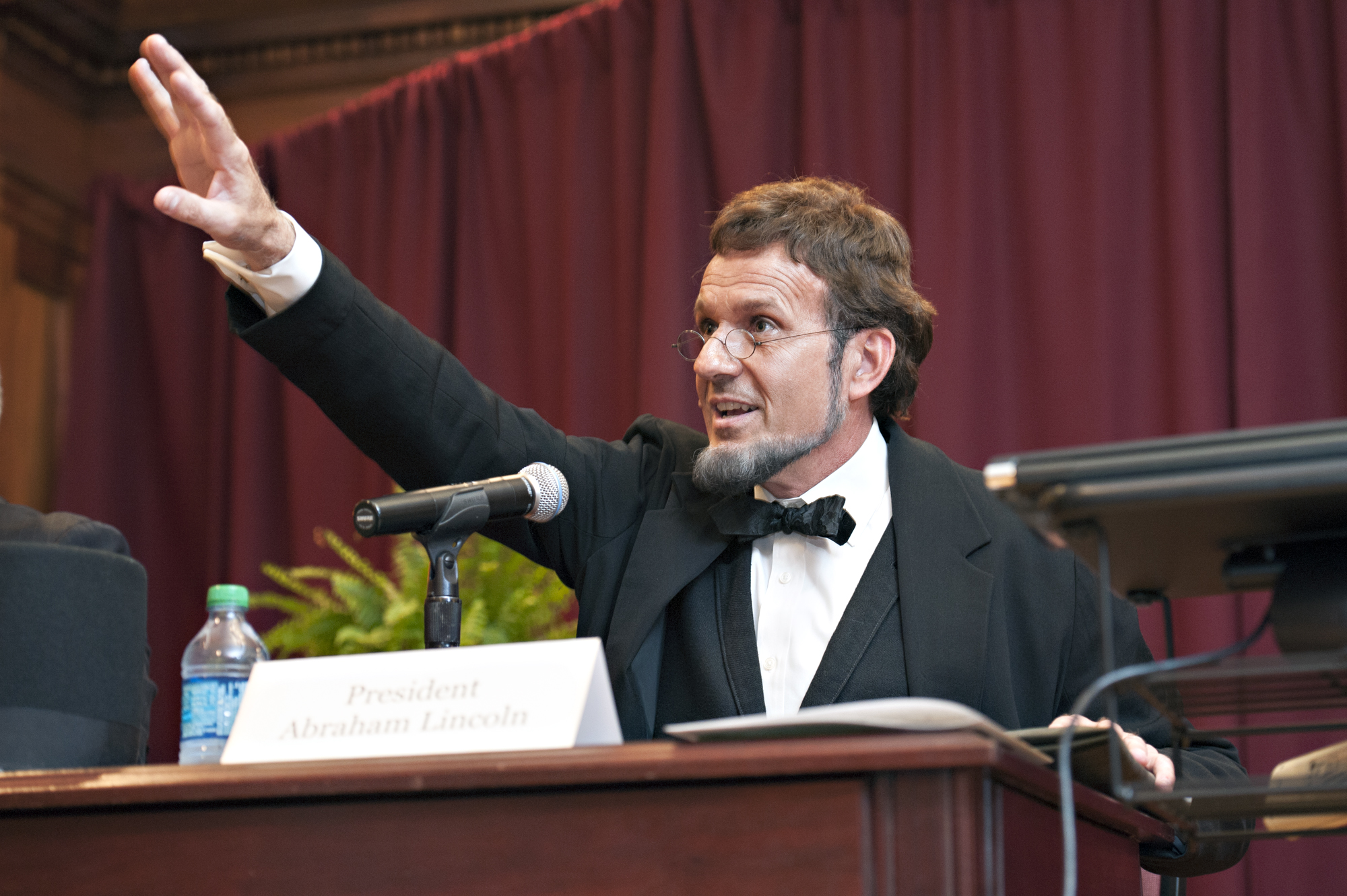Contact: Leah Barbour

Photo by: Megan Bean
During President Abraham Lincoln's press conference at Mississippi State University on Tuesday, he predicted emancipation would create true equality among all U.S. citizens.
Lincoln, historically interpreted by George Buss, was one of many experts participating in the Symposium on Lincoln: The Movie and the Man. In addition to the press conference, activities included a screening of the 2012 film "Lincoln" and presentations on the 16th president's military leadership and his relationships with African-Americans. The event was part of the institution's observance of the 150th American Civil War anniversary.
"Abraham Lincoln was America's greatest president during the period of American history which shaped this nation," said John F. Marszalek, executive director and managing editor of the U.S. Grant Association, which owns the MSU-based Grant Presidential Collection. "This symposium gives MSU students, faculty and staff a chance to learn about this great man and about the Civil War."
During the press conference, Buss-as-Lincoln responded to questions as if he were living in the 1860s, something moderator Sid Salter, director of MSU University Relations, called "maintaining the magic."
Buss-as-Lincoln predicted the Magnolia State would one day come to revere Ulysses S. Grant, and the emancipation proclamation was merely the first step in creating the true equality among all people that the founding fathers intended.
"I'm already on the record for promoting the notion of women's suffrage," he said. "There's talk in Congress ⦠about emancipation with conditions, but there will be a time when full emancipation will come forward."
The historical interpreter went on to say, not only should an African-American man one day hold the executive office of the United States, a woman could -- and should -- as well.
"If we're going to expand down that pathway, we need it wide enough for everyone to walk on," said Buss-as-Lincoln.
In addition to promoting the necessity of all U.S. men and women having equal rights, Buss-as-Lincoln emphasized the importance of education.
"There's something in the education that nobody can take away from you," he said. "If you never pick up that book, how are you going to read and know about where you are or know where you're going to go?"
Marszalek, who also is an MSU Giles Distinguished Professor of History Emeritus, presented on the similarities and differences between Lincoln's and Grant's military leadership. He additionally focused on the historical accuracy of the film.
MSU's Stephen Middleton, history professor and director of African-American Studies, explored Lincoln's relationship with African-Americans and the 13th Amendment. John David Smith, University of North Carolina-Charlotte's Charles H. Stone Distinguished Professor of American History, surveyed Lincoln's relationship with African-American troops active during the Civil War.
Finally, Frank J. Williams, retired Chief Justice of the Rhode Island Supreme Court, presided over a panel presentation including Buss-as-Lincoln, Marszalek, Middleton and Smith.
"We are proud of the excellent speakers who discussed the famous movie about this important president and crucial period," Marszalek said.